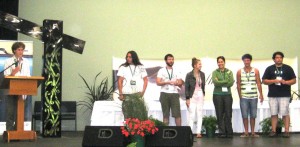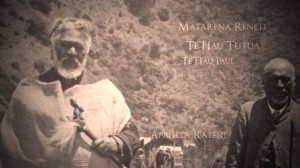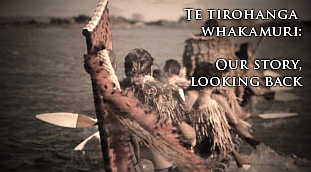Fr Pedro Walpole SJ recently attended an international conference in Whakatane, New Zealand on “Sharing Power: A New Vision for Development,” which focused on the needed shift in development paradigm for a sustainable world. On 16 January, he shared with the local Catholic community the experiences of the week while in Whakatane.

I live in the Philippines with a tribal community in the mountains of Agusan and Bukidnon. For twenty years, we have struggled to develop a curriculum for the children that they may have equity, a way of speaking with dignity in society and a security on the land. We could call this cognitive justice where different forms of learning and knowledge are supported in society. In this way, the language and the customs of the Pulangiyen feed into the broader social knowledge while strengthening the culture’s identity. Nobody could have imagined these things happening thirty years ago – that the youth of this village would have anything to contribute to society – today, they engage and contribute to the richness and brightness of a much troubled world.
For the last month, before coming here, I walked with my friend in the uplands of China through marginal villages; in languages I do not know, I listened to people in leprosy villages. They did not ask for themselves; their message was clear, let our children live free of this identity and social stigma of coming from such a village and let them live no longer herded but free on the land.
Technically, I suppose I am a hydro-geomorphologist. Simply, I look at how water comes together over the land. When I am not with the community in Bukidnon, I spend much of my time looking at landslide and disaster sites in the Philippines. I have covered most of the disaster areas in the last 20 years. Simply said: these disasters involve people living in the wrong places and that we do not yet comprehend the strength of the environment when we try to manipulate it for short sighted gain. Simply, we should and could avoid many of these disasters.
At present, Australia suffers a great tragedy in the floods with great loss of life and security. Likewise, people will come to understand that sadly, many of the disasters, floods and fires, reflect lack of locally integrated management and knowledge of land and life. Scientifically, we always confirm the event afterwards – it is understandable, no new scientific phenomenon has occurred; the only thing new is our greater awareness, and hopefully greater preparedness.
The broader global disaster we face is that it will take three worlds to sustain this one world at the rates of consumption we have presently. God’s word that we share on Sunday is not the basis to debate these issues but to have the humility to recognize much is going wrong and that we have to listen more keenly with the heart. Reconciliation with the land, sea and all life is deeply needed.
We have done best as we know in farming, forestry and fishing in this area, but as people have shared with me, collectively we now know we have done much damage to land and water, not intended by the individual. Now, collectively we need to listen: listen to God’s Creation, the land and water and all life, and as communities with great differences who must go deeper in sharing together respect for Creation. We cannot simply fix the wrong things ongoing and so, we are handing this environment and problems over to the growing generations for whom we do not have the answers. We need to listen for the youth need most of all hope and courage.
How are we to share with them the spirit of listening and of hearing others and of supporting them in making the decisions for our mistakes?
The youth of today face immense problems: in the family, community, institution and society and even here in Whakatane for the ecology of the land and sea. There are problems of food and the wrong food, of drugs and distractions, of what are real opportunities and who are real friends. They face many problems but they do not have to carry or be compromised by our biases and suffering. They will hear the Spirit and find the hope to move forward beyond the limitations and mistakes of older generations, if they are heard with encouragement.

I am impressed by the wisdom the youth seek and the vision they share:
The youth want to be asked of their experiences and their feelings. The youth do not need to be told everything and how to do everything; they need to strengthen their own sensitivity of conscience and discernment of action. Our generation gives them many environmental and social problems, biases and mismanagement that threaten their future. We also have to listen and know their growing wisdom and responsibility.
“If we listen, we too can share in the hope, the courage and blessing for the future and experience the Spirit growing.”

‘Language is my first priority. Retention of the language means retention of the culture. If we lose our language, we are just about to lose everything else.’ – Jojefa Mason, an iwi (indigenous) of Ngati Awa
The Ngati Awa has been through troubled times but together had stood strong. They are like adze whose bindings cannot be loosened by the sun or softened by the rain. They move forward, holding those ‘tongues’ that are important to them, maintaining their culture and language as a way forward.
“Our Aspirations 2050” video speaks about the vision of the people of Ngati Awa. Their dream for the future that sparrow forward to year 2050. Carrying with them the wisdom of their ancestors as their guiding stars, respecting their past and consolidating their present so that they are better prepared for the future.






